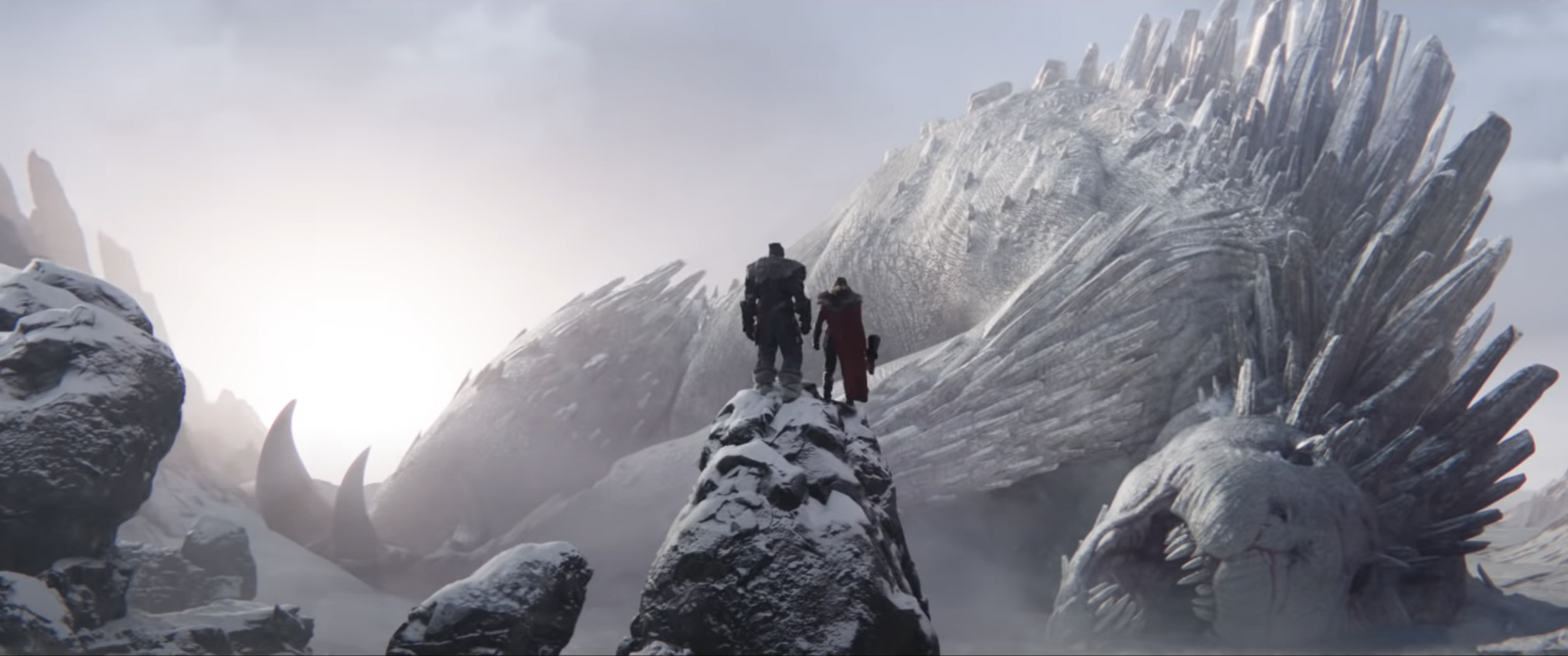Monday’s new trailer for Thor: Love and Thunder gave us our first good look at the movie’s villain, Gorr the God Butcher, as a heavily made-up Christian Bale ominously intoned: “All gods will die.”
Movie viewers are likely more familiar with Bale than with the character he’s playing, and that’s entirely reasonable. Compared to Thor mainstays like Loki, Malekith the Accursed, Surtur, etc., Gorr is a relative stripling, first appearing in comics a mere ten years ago. He’s only really had two stories about him.
But it’s the sheer quality of those stories that’s remarkable, from the minds of writer Jason Aaron and artist Esad Ribić, that catapulted him to the ranks of the greatest Thor villains ever put on the page.
Here’s the most important thing to know about Gorr: He wants to kill every god who has ever existed.
:no_upscale()/cdn.vox-cdn.com/uploads/chorus_asset/file/23545219/IMG_7B00BE45E5F7_1.jpeg)
Who is Gorr, and why is he called the God Butcher?
A the dawn of all cosmic time, Gorr was an unremarkable alien from a planet so unremarkable that it had no name. His home was inhospitable to life, plagued by drought, famine, earthquakes, and wild beasts. Still, his people believed their gods were watching over them, listening to their prayers, and that misfortune was ineffable divine will. Gorr questioned those ways, and — after the slow, individual deaths of his wife and all of his children — cursed his people’s gods, for which he was banished from his tribe of starving nomads to wander alone until he died.
He was then present for a divine visitation — two gods, locked in battle, slammed meteor-like from the heavens into the desert, exhausted from their combat and succumbing to their wounds. As Gorr approached, seeing with his own eyes proof that gods existed, one of the armored figures called out to him … for help.
And that was the moment that Gorr the God Butcher was born. Enraged that a god would ask him for help after his life of prayer had gone unheeded, Gorr took up the other god’s blade and murdered the first. The divine weapon, known as All-Black, the Necrosword (and also the Annihilablade, the Godslayer, and the Slicer of Worlds), endowed Gorr with the power he needed to hunt gods across the stars.
:no_upscale()/cdn.vox-cdn.com/uploads/chorus_asset/file/23585336/Screen_Shot_2022_05_24_at_9.38.56_AM.png)
Jason Aaron and Esad Ribić created Gorr as the first villain of their 2012 series Thor: God of Thunder, which proved a launching pad for Aaron’s seven-year run at the helm of Marvel’s Asgard stories. Gorr only appeared at the beginning and the very end of that run, but his legacy was felt throughout, as an embodiment of its themes. Aaron followed Thor as he wrestled with whether gods themselves were worthy of mortal admiration, and a mortal herself took up his hammer, his role, and his name.
Thor: Love & Thunder is clearly inspired by Aaron’s Thor comics, and not just in involving Jane Foster as Thor — in at least one case it is pulling directly from Ribić’s visuals (not the first time director Taika Waititi has done that, either).
What was Gorr’s plan?
Gorr tortured a god of bombs until his mind was broken and willing, and with the designs of a new divine weapon, the God Butcher traveled to the end of time (don’t worry about how, it’s the Marvel Universe, everyone’s practically tripping over time travel options). What gods he didn’t kill, he enslaved, forcing them to construct their own undoing: The Godbomb. When ready and activated, it would reach across space and time to kill every god, everywhere, at every point in which they had ever existed, simultaneously.
The shapeshifting, fleshmending Necrosword made him more than capable of taking on gods in single combat, and furnished him with an endless army of jet-black monsters to do his bidding, ones that look a lot like the mass of jet-black monsters Thor and Jane are fighting in trailers.
The Necrosword was later retconned into being the form of the first symbiote — like, the thing that Venom is — but who knows if that’ll be a part of Thor: Love & Thunder.
How was Gorr stopped?
Gorr was eventually subdued and beheaded by a team of Thors from across time — Young Thor, who was not yet worthy to wield Mjolnir; Heroic Age Thor, founder of the Avengers; and King Thor, the All-Father, a Thor from the end of time who ruled over Asgard. But, fittingly for a story of a mortal standing against the gods, Gorr was also defeated by hubris.
:no_upscale()/cdn.vox-cdn.com/uploads/chorus_asset/file/23585404/IMG_AA110B006FB8_1.jpeg)
At the very moment he was to activate the Godbomb, Gorr realized that in his quest for power, influence, and self-satisfaction, he had become a god himself. The realization ruptured the already significant cracks in his psyche, and as he descended into true madness, Young Thor lopped off his head.
How Gorr’s story will play out in Thor: Love & Thunder, only the gods — and the people who made the movie — know. But we’ll find out when the movie hits theaters on July 8.


